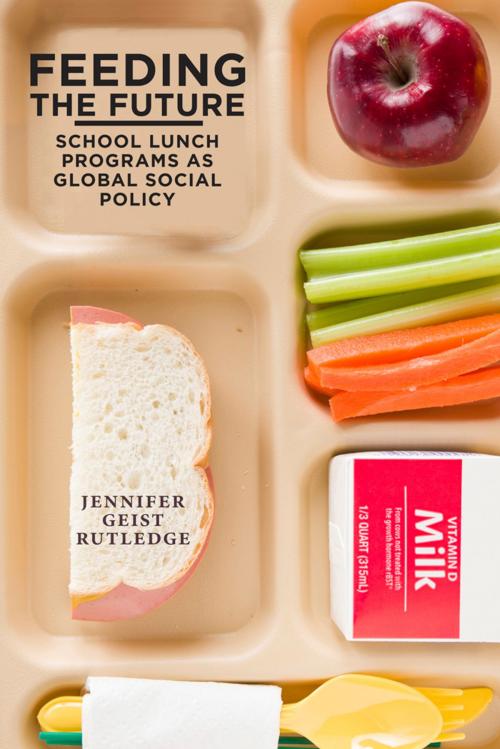Feeding the Future
School Lunch Programs as Global Social Policy
Nonfiction, Social & Cultural Studies, Political Science, Government, Social Science| Author: | Jennifer Geist Rutledge | ISBN: | 9780813573335 |
| Publisher: | Rutgers University Press | Publication: | May 11, 2016 |
| Imprint: | Rutgers University Press | Language: | English |
| Author: | Jennifer Geist Rutledge |
| ISBN: | 9780813573335 |
| Publisher: | Rutgers University Press |
| Publication: | May 11, 2016 |
| Imprint: | Rutgers University Press |
| Language: | English |
A century ago, only local charities existed to feed children. Today 368 million children receive school lunches in 151 countries, in programs supported by state and national governments. In Feeding the Future, Jennifer Geist Rutledge investigates how and why states have assumed responsibility for feeding children, chronicling the origins and spread of school lunch programs around the world, starting with the adoption of these programs in the United States and some Western European nations, and then tracing their growth through the efforts of the World Food Program.
The primary focus of Feeding the Future is on social policy formation: how and why did school lunch programs emerge? Given that all countries developed education systems, why do some countries have these programs and others do not? Rutledge draws on a wealth of information—including archival resources, interviews with national policymakers in several countries, United Nations data, and agricultural statistics—to underscore the ways in which a combination of ideological and material factors led to the creation of these enduringly popular policies. She shows that, in many ways, these programs emerged largely as an unintended effect of agricultural policy that rewarded farmers for producing surpluses. School lunches provided a ready outlet for this surplus. She also describes how, in each of the cases of school lunch creation, policy entrepreneurs, motivated by a commitment to alleviate childhood malnutrition, harnessed different ideas that were relevant to their state or organization in order to funnel these agricultural surpluses into school lunch programs.
The public debate over how we feed our children is becoming more and more politically charged. Feeding the Future provides vital background to these debates, illuminating the history of food policies and the ways our food system is shaped by global social policy.
A century ago, only local charities existed to feed children. Today 368 million children receive school lunches in 151 countries, in programs supported by state and national governments. In Feeding the Future, Jennifer Geist Rutledge investigates how and why states have assumed responsibility for feeding children, chronicling the origins and spread of school lunch programs around the world, starting with the adoption of these programs in the United States and some Western European nations, and then tracing their growth through the efforts of the World Food Program.
The primary focus of Feeding the Future is on social policy formation: how and why did school lunch programs emerge? Given that all countries developed education systems, why do some countries have these programs and others do not? Rutledge draws on a wealth of information—including archival resources, interviews with national policymakers in several countries, United Nations data, and agricultural statistics—to underscore the ways in which a combination of ideological and material factors led to the creation of these enduringly popular policies. She shows that, in many ways, these programs emerged largely as an unintended effect of agricultural policy that rewarded farmers for producing surpluses. School lunches provided a ready outlet for this surplus. She also describes how, in each of the cases of school lunch creation, policy entrepreneurs, motivated by a commitment to alleviate childhood malnutrition, harnessed different ideas that were relevant to their state or organization in order to funnel these agricultural surpluses into school lunch programs.
The public debate over how we feed our children is becoming more and more politically charged. Feeding the Future provides vital background to these debates, illuminating the history of food policies and the ways our food system is shaped by global social policy.















